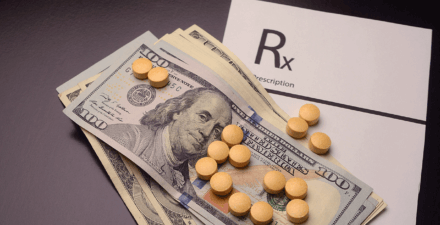U.S. Congress continues to make progress on drug price competition

Legislation to address skyrocketing pharmaceutical drug prices by boosting market competition continues to be one of the few areas for bipartisan cooperation in the 116th Congress. On April 30, the House Judiciary Committee became the second committee to take unanimous action on legislation to address the market-bending actions that drug manufacturers take to reduce competition, passing four important bills. With the Energy and Commerce Committee having acted previously, the House is now poised to consider a package of pharmaceutical competition legislation to send to the Senate, where there is also considerable bipartisan support for action.
Like the Energy and Commerce bills, the measures passed by the Judiciary Committee on April 30 focus on company efforts to block or delay the development and marketing of generic drugs, medications that are essentially identical to the original brand drugs but that are sold at far lower prices, saving consumers billions of dollars on both drug purchases and insurance premiums. The introduction of generic drugs, originally made possible by the Hatch-Waxman Act 35 years ago, provides meaningful competition where there essentially was none and therefore threatens the profits of drug companies. Some companies have adopted the strategy to prevent or delay the introduction of generics. And they have used gaps in Hatch-Waxman and in other laws, as well as in enforcement standards, to develop successful tactics for preventing competition.
Meaningful competition is fundamental to a successful, equitable market economy, and the relative lack of it has helped to send prices in this industry out of control. As I told the House Judiciary Committee when I testified on these issues earlier this year, “[C]ompetition can play a vital role in promoting the development of new drugs and controlling costs … Today, however, competition is broken. It has become far too easy for companies to manipulate the system to delay competition and increase prescription drug costs.”
Three of the bills about which I testified are among the four included in the Judiciary Committee legislative package.
- The Preserve Access to Affordable Generics and Biosimilars Act (H.R. 2375), sponsored by Committee Chairman Jerrold Nadler (D-NY) and Ranking Member Doug Collins (R-GA), addresses pay-for-delay agreements under which manufacturers of brand-name drugs pay a competitor not to produce a generic or biosimilar version of the drug.
- The Creating and Restoring Equal Access to Equivalent Samples (CREATES) Act (H.R. 965), introduced by Reps. David N. Cicilline (D-RI) and Jim Sensenbrenner (R-WI), would prevent brand-name pharmaceutical companies from blocking the producers of generics from obtaining the samples they need of an original branded drug against which to test their own products to show the Food and Drug Administration, or FDA, that they are indeed equivalent. This is a common tactic for blocking new generics.
- Finally, the Stop Significant and Time-wasting Abuse Limiting Legitimate Innovation of New Generics (Stop STALLING) Act (H.R. 2734), introduced by Reps. Hakeem Jeffries (D-NY) and Rep. Sensenbrenner would, according to the committee press release, “curb the abuse of the Food and Drug Administration (FDA) citizen petition process and expand access to prescription drugs by reducing incentives for branded pharmaceutical companies to interfere with the regulatory approval of generics and biosimilars that compete with their own products.” Further, it explicitly would allow the FTC to challenge this practice in federal court, overturning a recent federal court decision that severely limited the Commission’s authority.
The fourth Judiciary bill, the Prescription Pricing for the People Act (H.R. 2376), proposed by Reps. Collins and Nadler, calls for a study by the Federal Trade Commission on the state of competition in the drug supply chain. Its purpose is to determine whether or not pharmacy benefit managers have engaged in anti-competitive practices.
The bills passed by the Energy and Commerce Committee on April 4 include the CREATES Act and the Protecting Consumer Access to Generic Drugs Act (H.R. 1499), introduced by Rep. Bobby Rush (D-IL)—a measure that, like the similarly named Preserve Access to Affordable Generics and Biosimilars Act, addresses pay-for-delay agreements.
It’s anticipated that the committee-passed bills will be considered by the full House of Representatives as early as this week.
Two things that have been in short supply in Congress in recent years are bipartisanship and action of any kind to address concentration and revive competition in the U.S. economy. Enactment of these drug-pricing bills would help address both shortages.







